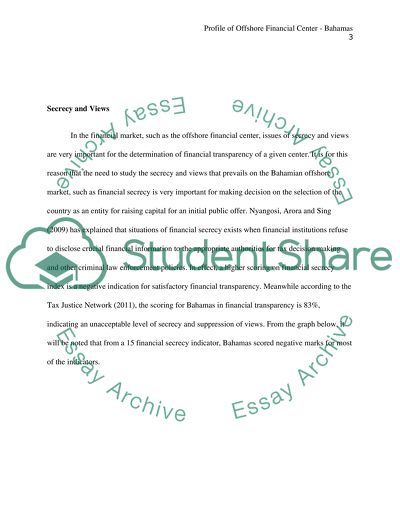Cite this document
(Offshore Financial Center - Bahamas Case Study Example | Topics and Well Written Essays - 1965 words, n.d.)
Offshore Financial Center - Bahamas Case Study Example | Topics and Well Written Essays - 1965 words. Retrieved from https://studentshare.org/finance-accounting/1485091-profile-of-offshore-financial-center-bahamas
Offshore Financial Center - Bahamas Case Study Example | Topics and Well Written Essays - 1965 words. Retrieved from https://studentshare.org/finance-accounting/1485091-profile-of-offshore-financial-center-bahamas
(Offshore Financial Center - Bahamas Case Study Example | Topics and Well Written Essays - 1965 Words)
Offshore Financial Center - Bahamas Case Study Example | Topics and Well Written Essays - 1965 Words. https://studentshare.org/finance-accounting/1485091-profile-of-offshore-financial-center-bahamas.
Offshore Financial Center - Bahamas Case Study Example | Topics and Well Written Essays - 1965 Words. https://studentshare.org/finance-accounting/1485091-profile-of-offshore-financial-center-bahamas.
“Offshore Financial Center - Bahamas Case Study Example | Topics and Well Written Essays - 1965 Words”, n.d. https://studentshare.org/finance-accounting/1485091-profile-of-offshore-financial-center-bahamas.


